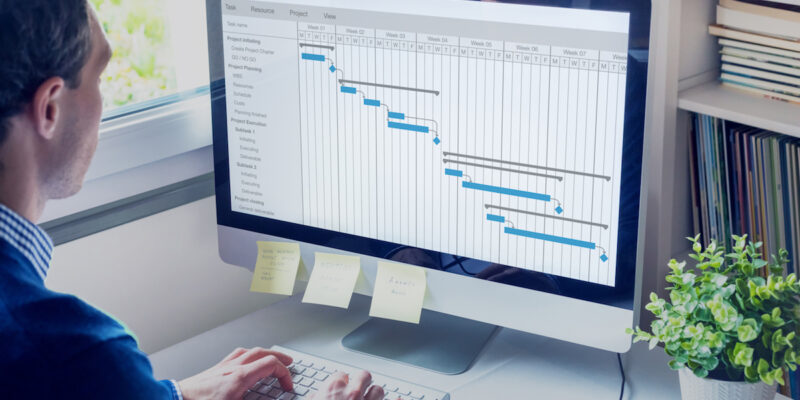
In contracting, efficient project management is key to success. The right project management software for contractors can make all the difference, streamlining operations and ensuring projects are completed on time and within budget. With numerous options available, knowing which features are most beneficial is important. Top seven features contractors should look for in project management software, including the integration of equipment tracking software, to optimize their project workflows.
1. Comprehensive Job Costing Capabilities
Accurate job costing is essential in project management, particularly for contractors who manage multiple projects with varying scopes and budgets. Look for software that offers detailed job costing features, enabling you to track project expenses in real-time. This includes materials, labor, subcontractor costs, and other expenditures.
Effective job costing software provides a clear financial picture of each project, helping contractors identify areas where costs are overrun and make adjustments accordingly. It should allow for the creation of detailed budgets, comparison of actual costs against estimates, and generation of comprehensive financial reports. This level of financial insight is crucial for maintaining profitability and making informed business decisions.
2. User-Friendly Interface and Ease of Use
The best project management software for contractors is intuitive and easy to use. A user-friendly interface ensures that all team members can effectively utilize the software, regardless of their technical expertise. Look for a platform with a straightforward dashboard, easy navigation, and clear, understandable features.
The software should facilitate quick access to important information and common tasks. Features like drag-and-drop scheduling, easy report generation, and simple data entry can significantly enhance user experience. A platform that reduces the learning curve and increases user adoption is invaluable in a fast-paced contracting environment.
3. Real-Time Communication and Collaboration Tools
In today’s fast-moving construction projects, real-time communication and collaboration are vital. Project management software should offer tools that enable seamless communication among team members, subcontractors, and clients. Features like in-app messaging, task assignment notifications, and document sharing are essential.
The software should also allow for real-time updates on project progress, changes in schedules, or any issues that arise. This ensures everyone involved in the project is on the same page, reducing misunderstandings and delays. Effective collaboration tools can significantly improve project execution and team productivity.
4. Integration with Equipment Tracking Software
Integration with equipment tracking software is a key feature for contractors managing large inventories of equipment. This integration efficiently tracks equipment usage, location, and maintenance schedules. It helps optimize equipment utilization, reduce downtime, and ensure the right equipment is available when needed.
Look for project management software that can seamlessly integrate with your existing equipment tracking system or offers built-in equipment management features. This integration provides a holistic view of project progress and equipment status, aiding in better resource management.
5. Customizable Reporting and Analytics
Access to customizable reporting and analytics is critical in project management software. Contractors need the flexibility to generate reports tailored to their specific needs, whether for tracking project milestones, financial performance, or resource allocation.
The software should offer a range of reporting templates and the ability to create custom reports. Analytics features that provide insights into project trends, productivity, and forecasting are also valuable. These tools can help contractors make data-driven decisions and keep projects aligned with business goals.
6. Mobile Accessibility
Given the nature of contracting work, mobile accessibility is a must-have feature in project management software. Accessing project information, communicating with team members, and updating project statuses from the field is extremely valuable.
Look for software that offers a robust mobile app or a mobile-responsive design. This ensures contractors and their teams can stay connected and productive, regardless of location. Mobile access improves responsiveness and allows for real-time decision-making on-site.
7. Robust Security and Data Protection
Lastly, robust security and data protection are crucial in project management software. Contractors deal with sensitive project information, and it’s vital that this data is securely stored and protected from unauthorized access or cyber threats.
Choose software with strong security features, including data encryption, secure user authentication, and regular backups. The provider should also comply with industry standards and regulations regarding data privacy and protection. Ensuring the security of your project data is paramount to maintaining client trust and safeguarding your business reputation.
Conclusion
Choosing the right project management software is pivotal for contractors looking to enhance efficiency, collaboration, and overall project success. By focusing on these seven key features, contractors can select a software solution that meets their needs and drives project performance. For those in search of comprehensive project management and equipment tracking software, Foundation Software offers a range of robust options tailored to the unique demands of the contracting industry. Visit their website to discover how their software can optimize your project management processes and contribute to the success of your business.










